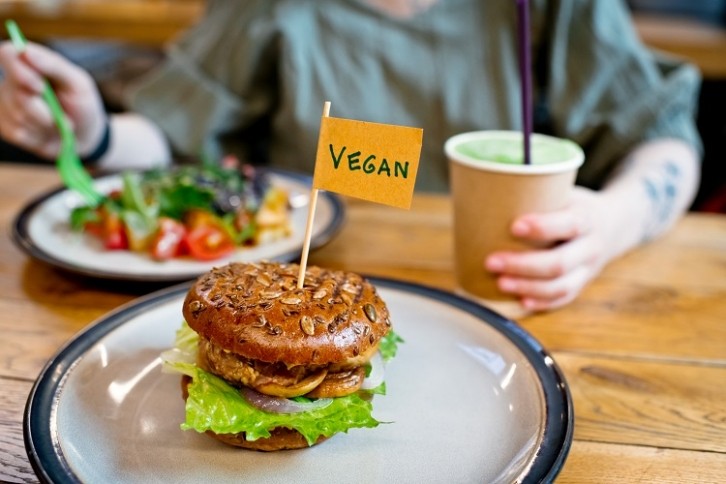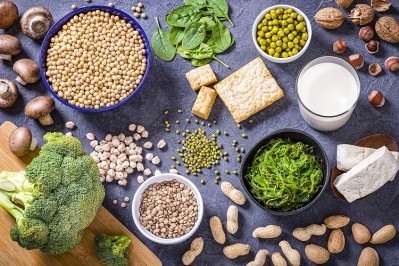Has the plant-based trend peaked?

The plant-based trend has been unstoppable in recent years, with everyone from F1 racing legend, Lewis Hamilton, to former US President, Bill Clinton, extolling its virtues. And it’s not just people in the public eye choosing the animal-free lifestyle. Many millions of consumers across the globe have made the switch in recent years, leading to January being rebranded as 'Veganuary' in honour of the food-based movement.
In fact, figures from data intelligence platform, Statista, which looked at 18 of the 27 EU member states, found that an estimated 6.62 million people now identify as vegan.
However, recent chatter from certain corners of the food industry has suggested that the plant-based trend is stalling and could even be declining. But is this true?

Has the plant-based trend peaked?
The answer to this question is, as expected, more complex than a simple yes or no. However, there are certainly signs that the plant-based industry is experiencing difficulties. In January 2024, FoodNavigator reported that merger and acquisition activity in 2023 had identified the first clear signs that the upwards trajectory of the plant-based trend was slowing.
“UK plant-based companies have particularly struggled in 2023, with three notable businesses being acquired out of administration,” said Mark Lynch, partner at Oghma Partners. “In June, Vegan Food Group (formerly known as VFC) acquired Meatless Farm, in July VBites acquired Plant and Bean, and in December it was announced that VBites had gone into administration.”
But these acquisitions relate to a very specific area of the plant-based industry. So could this change have more to do with the types of plant-based foods that plant-based consumers are choosing rather than a complete move away from the lifestyle altogether?
“As a young and evolving category, consumer needs are changing fast,” Christopher Kong, CEO and co-founder of Better Nature, told FoodNavigator. “The explosion in growth of meat alternatives over the past five years was driven largely by their positioning as novel indulgences, with consumers buying into products that replicate the taste and texture of meat. These products are novel but lack versatility, which in turn has restricted volume growth.”
There has also been very clear concern from consumers over the ingredients and processing involved in the creation of many plant-based products. In particular, the fact that many plant-based products are ultra processed. This has resulted in what has been termed the ‘plant-based backlash’ as consumer trust has been challenged.
“Today, health is driving the category, with half of consumers (49%) concerned that meat alternatives are too processed, a concern heightened by the ever-growing scrutiny of ultra-processed foods," adds Kong. "Instead, they’re looking for wholefood products with nutritional benefits such as high protein and gut friendly.”
"Today, health is driving the category, with half of consumers (49%) concerned that meat alternatives are too processed, a concern heightened by the ever-growing scrutiny of ultra-processed foods. Instead, they’re looking for wholefood products with nutritional benefits such as high protein and gut friendly."
Another issue posing a challenge to the plant-based industry and serving as a deterrent to consumers is the price of some plant-based products.
“As the cost-of-living increases, many consumers are looking to cut the cost of their grocery shopping, and the first items to go are often those in a higher price bracket which includes meat, dairy and plant-based meat substitutes,” Maisie Stedman, media and PR officer for The Vegan Society, told FoodNavigator.
Conversely the wholefoods, which Christopher Kong previously referred to, have been faring better when it comes to consumer preference.
“In June 2022, our Live Vegan for Less campaign found a third of shoppers were cutting back on meat and dairy products in response to the cost-of-living, whilst our cost comparison research across the major supermarkets, showed that vegan sources of protein, such as dried lentils, peanut butter and baked beans, continued to be the cheapest options,” says Stedman.
So, what’s next for the plant-based industry and how will it adapt to changing demand?

What’s next for the plant-based industry?
Changing consumer demand highlights evolving consumer preferences within the plant-based sphere, rather than a move away from plant-based eating altogether. This presents sizable challenges to the industry, the first of these challenges being affordability.
“Many people are prioritising how they choose to spend their money and may be replacing both meat and meat-substitutes with more budget friendly vegan options in a bid to make savings on their weekly shops,” said The Vegan Society’s Stedman.
"Many people are prioritising how they choose to spend their money and may be replacing both meat and meat-substitutes with more budget friendly vegan options in a bid to make savings on their weekly shops."
But many believe that making plant-based eating more affordable should not be the sole responsibility of the plant-based industry.
“The Vegan Society urges all policymakers and political parties to support a managed and just transition to a more sustainable, plant-based food system so that we can meet climate targets and for the good of all people, our planet and animals,” Claire Ogley, head of campaigns, policy and research for The Vegan Society, told FoodNavigator.
The next is challenge facing the plant-based industry is, undoubtedly, the health implications of some plant-based products.
“Ultra-processing is by far one of the biggest challenges we face as an industry today,” says Better Nature’s Kong. “However, where there’s a challenge there’s also an opportunity. As an industry, we’re going back to our roots, focusing on all-natural, minimally processed whole foods that consumers can trust. ‘Old school’ production methods, such as tempeh fermentation, are being explored, delivering on nutrition, taste and texture. We’re also seeing new ingredients such as oyster mushroom stems and potato starch that deliver better texture in a more natural way.”
The final challenge will be communicating any positive changes made, to the consumer.






















